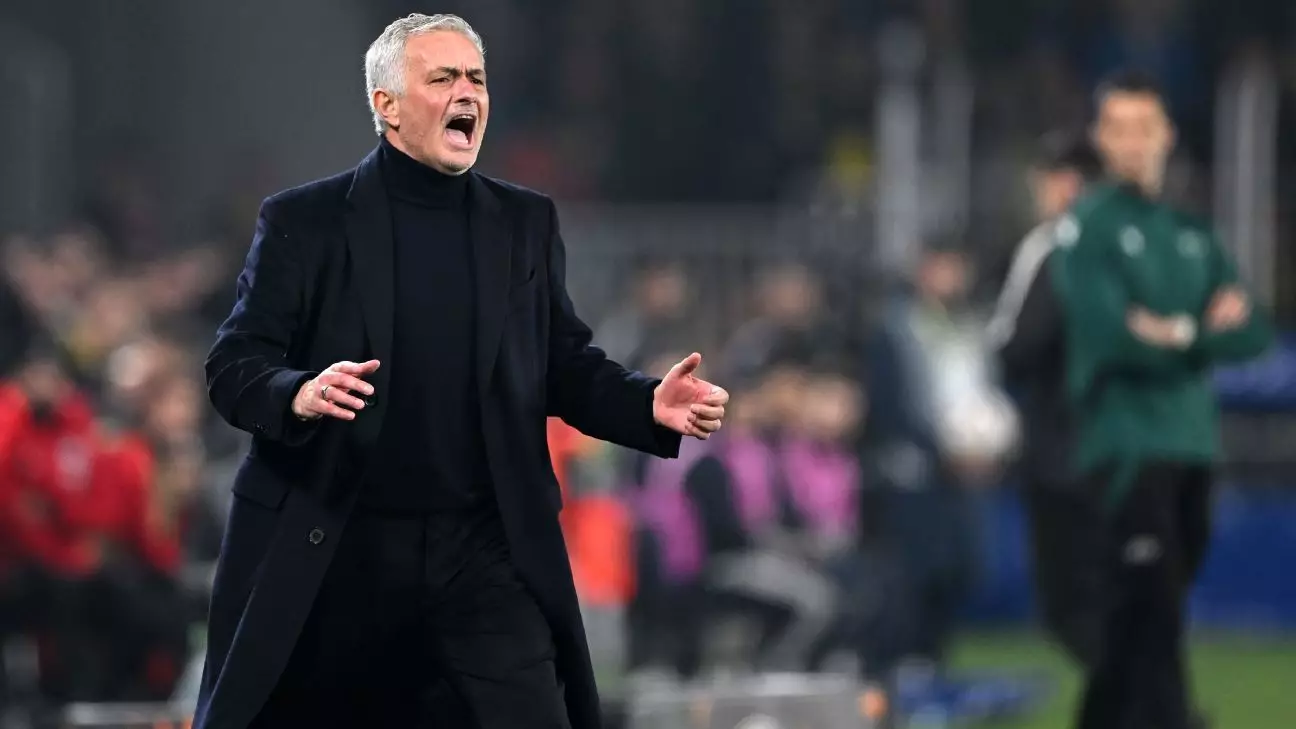In a dramatic turn of events within Turkish football, Fenerbahce has launched legal action against their cross-town rivals Galatasaray, centering around controversies involving coach Jose Mourinho. The club’s grievance stems from accusations leveled by Galatasaray, which asserted that Mourinho made racist remarks during a recent Istanbul derby. This incident not only intensifies the age-old rivalry between these two powerhouses but also opens a larger conversation about sportsmanship, accountability, and the impact of words within athletics.
After the derby match, Galatasaray publicly criticized Mourinho for allegedly using “unequivocally inhumane rhetoric,” claiming that his description of their bench “jumping around like monkeys” was derogatory. In response, Fenerbahce vehemently denied these allegations, arguing that the comments were misinterpreted and taken out of context. Their statement emphasized that such rhetoric should not be misconstrued as discriminatory but rather understood as part of the emotional discourse typical of high-stakes encounters in sport.
Mourinho’s recent history in football has seen him embroiled in controversies, and this incident adds to his complex relationship with Turkish football culture. Fenerbahce’s assertion—that the remarks were twisted and mangled in public discourse—reflects a defensive posture taken by clubs to protect their players and management from what they perceive as unwarranted accusations.
In response to Galatasaray’s charges, Fenerbahce announced it had filed a lawsuit for damages amounting to approximately 1 million 907 thousand Turkish lira (about $52,000) due to what they termed an “attack on the personal rights” of their technical director. Notably, the figure mentioned echoes Fenerbahce’s founding year, adding a layer of historical significance to their legal action. This strategic move illustrates how clubs in competitive sports leverage their histories and identities to fortify their institutional honor.
Galatasaray, undeterred by Fenerbahce’s legal proceedings, hinted at launching their own criminal case against Mourinho, reinforcing their stance by accusing him of making derogatory statements about the Turkish people. The situation is embroiled in a legal quagmire, highlighting not just personal egos but also the societal implications of racism and respect within sports—a topic that has been the subject of heated debates globally.
Adding another layer to the fray, the Turkish Football Federation recently handed Mourinho a four-match ban alongside a hefty fine for comments regarding Turkish referees, which he casually noted after negative interactions during the derby. This ruling reflects the federative body’s stance on maintaining decorum and respect among coaches, players, and officials in the league. Mourinho’s remarks—encouraging the employment of foreign referees—could indicate an ongoing struggle within Turkish football concerning the quality and integrity of officiating.
As Jose Mourinho continues his multifaceted career in the Turkish league, this particular saga will undoubtedly shape future interactions between players, coaches, and clubs. The legal and reputational ramifications of such events stress the importance of clarity, responsibility, and respect in the charged atmosphere of competitive sports. The Fenerbahce-Galatasaray feud will likely serve as a case study in how rivalries navigate the tumultuous waters of personal attacks and public perception, underscoring the fine line that exists between passion and professionalism in football.


Leave a Reply